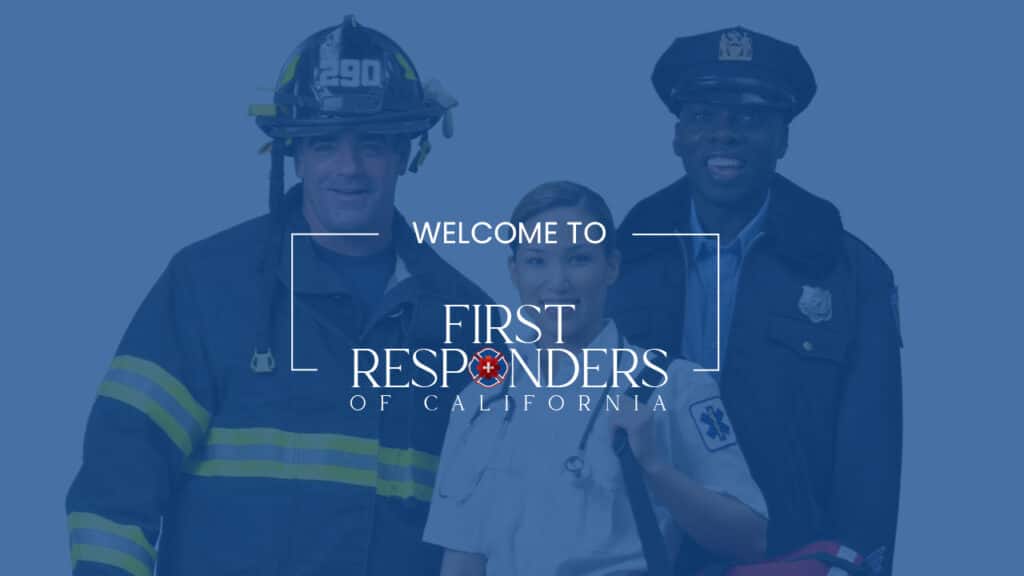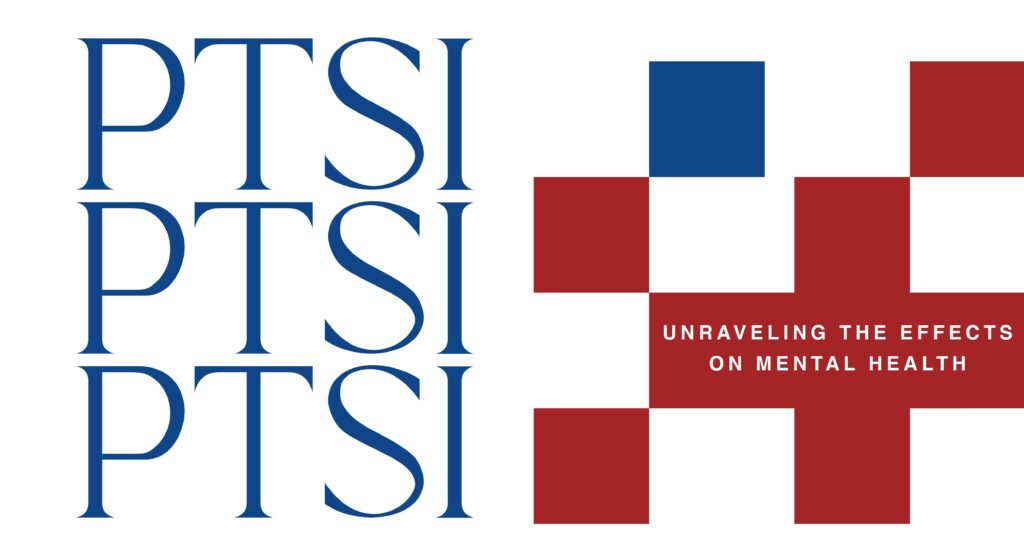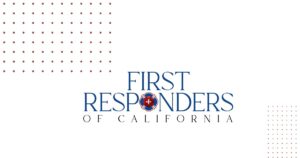Living with PTSI affects both mind and body. People often feel constant stress, even in safe situations. The brain stays alert, causing fatigue and mood swings. These effects make normal tasks difficult. Understanding the connection between trauma and mental health is the first step toward recovery and growth.
Emotional health weakens when PTSI goes untreated. Many experience anxiety, depression, or isolation. Relationships may suffer, and work performance can decline. With the right care, people learn to manage symptoms. Early support and treatment help restore balance, rebuild confidence, and guide individuals toward a healthier life.

Defining PTSI and Its Impact on Individuals
PTSI stands for post-traumatic stress injury. It happens when people face extreme stress or trauma, often from life-threatening events. Unlike short-term stress, PTSI lingers and changes how the brain reacts to triggers.
First Responders of California
Common symptoms include:
- Nightmares and flashbacks.
- Difficulty sleeping or resting.
- Feeling anxious in safe environments.
- Strong physical reactions to reminders of trauma.
- Trouble focusing on work or studies.
The impact is broad. PTSI affects mental health, relationships, and even physical well-being. People may feel isolated or misunderstood. The condition also interferes with work performance and daily tasks. Left untreated, PTSI can lead to depression, anxiety, and health issues.
PTSI vs. PTSD: Clarifying the Differences
People often confuse PTSI with PTSD. While both describe trauma-related conditions, PTSI is more positive and recovery-focused.
- PTSD. PTSD labels trauma as a “disorder,” suggesting something is broken. This term often carries a stigma that prevents people from seeking help. Many feel defined by the label rather than their recovery potential. The word “disorder” can make individuals believe healing is impossible.
- PTSI. PTSI describes trauma as an “injury,” something treatable with the right care. This framing encourages people to view trauma as temporary. Injuries can heal with proper treatment and support. The term builds hope and reduces shame in recovery.
This language shift matters. Calling it an injury reduces stigma and encourages treatment. Just like a broken bone, PTSI can heal. This difference in terms motivates people to seek help instead of feeling hopeless.
The Role of Mental Health in Managing PTSI
Strong mental health care is essential for managing PTSI. The condition affects thinking patterns, emotional control, and physical responses.
Healthy coping requires:
- Building awareness about triggers
- Learning relaxation and grounding techniques
- Engaging in therapy or counseling
- Seeking support from family and peers
Mental health professionals help people rebuild confidence and resilience. Regular care reduces symptoms and prevents long-term harm. Good mental health practices also improve sleep, focus, and relationships.
Effective Strategies for Coping With PTSI
Coping with PTSI is possible with consistent effort. Different strategies work for different people.
Helpful techniques include:
- Grounding exercises. Staying present with breathing or sensory focus. These practices calm the mind during stressful moments. They also reduce overthinking and help control emotional reactions.
- Physical activity. Exercise reduces stress and boosts mood. Regular movement builds resilience against anxiety. It also improves sleep and strengthens the body’s natural stress response.
- Structured routines. Consistency provides comfort and stability. Clear schedules reduce uncertainty and create balance. Routines also give a sense of control over daily life.
- Peer support groups. Talking with others facing similar struggles. Group discussions reduce feelings of isolation. They also offer encouragement from people who truly understand trauma.
- Creative outlets. Writing, art, or music for emotional release. Creative activities channel strong emotions in healthy ways. They also build confidence and inspire personal growth.
These strategies do not replace professional care. They support healing and reduce daily stress. When combined with therapy, coping tools improve recovery outcomes.
Innovative Approaches to Treatment and Support
New methods of treatment are bringing hope to those with PTSI. Healthcare providers now use advanced solutions to improve recovery.
| Approach | How It Helps |
| Cognitive Behavioral Therapy (CBT) | Teaches new ways to handle thoughts and reactions |
| Eye Movement Desensitization and Reprocessing (EMDR) | Helps the brain reprocess traumatic memories |
| Virtual Reality Therapy | Creates safe environments to face trauma triggers |
| Medication Management | Balances brain chemicals and reduces severe symptoms |
| Peer-Led Programs | Builds trust through shared experiences |
Innovative care improves recovery speed and quality. Combining therapy, technology, and community support creates a stronger healing journey.
Resources and Support Systems for PTSI Sufferers
People with PTSI need strong support systems. These resources guide healing and provide encouragement.
First Responders of California
Key resources include:
- Local support groups for shared experiences.
- Online communities with safe spaces for connection.
- Crisis hotlines for urgent help.
- Mental health apps for daily coping tools.
- Family education programs for better understanding.
Support systems reduce isolation. They help individuals feel valued and understood. Accessing the right resource can transform recovery.
Long-Term Outlook for Individuals With PTSI
The long-term outlook for PTSI is hopeful with proper care. Many people recover and live fulfilling lives. Healing is not quick, but progress is possible.
Positive outcomes of treatment:
- Reduced flashbacks and nightmares.
- Improved relationships and social engagement.
- Better job performance and focus.
- Restored sense of purpose.
Long-term management requires commitment. Regular therapy, healthy routines, and strong support improve recovery. With time, people with PTSI regain stability and hope.
First Responders of California: Compassionate Support for Those Living with PTSI
At First Responders of California, we provide care tailored for individuals facing PTSI. Our team understands the stress and trauma that first responders endure. We focus on practical solutions that make healing possible.
We combine advanced treatment with compassion. From therapy programs to community outreach, our support is designed to restore strength. We also offer guidance for families, helping them understand and assist loved ones.
If you or someone you know faces PTSI, contact First Responders of California. You are not alone. Help is always available.

FAQs
How can analytics solutions enhance strategic planning for businesses dealing with PTSI-related challenges?
Analytics solutions provide valuable insights into program performance and user needs. They support better planning and decision-making for organizations. These solutions guide businesses toward effective strategies that improve outcomes for people living with PTSI.
What role does data integration play in improving customer engagement for organizations offering PTSI support?
Data integration connects different platforms and creates seamless communication. It helps organizations understand client needs and design effective solutions. Better engagement comes when support systems meet users with personalized care at every step.
How do real-time insights from business intelligence platforms aid in optimizing performance for PTSI treatment programs?
Business intelligence delivers real-time insights that track treatment progress and effectiveness. This ensures better decisions and adaptive responses to patient needs. Continuous improvements in treatment programs build stronger outcomes for people with PTSI.
What are the benefits of using cloud-based platforms for managing data related to PTSI and mental health services?
Cloud-based platforms provide secure and scalable access to sensitive data. They improve collaboration among providers and ensure fast information sharing. This makes mental health services more efficient and accessible to those in need.
First Responders of California
How can businesses leverage performance optimization techniques to improve outcomes for individuals impacted by PTSI?
Performance optimization helps streamline operations and reduce wasted resources. Businesses can deliver timely, effective support services through better resource use. Stronger outcomes mean improved recovery journeys for individuals managing PTSI.












